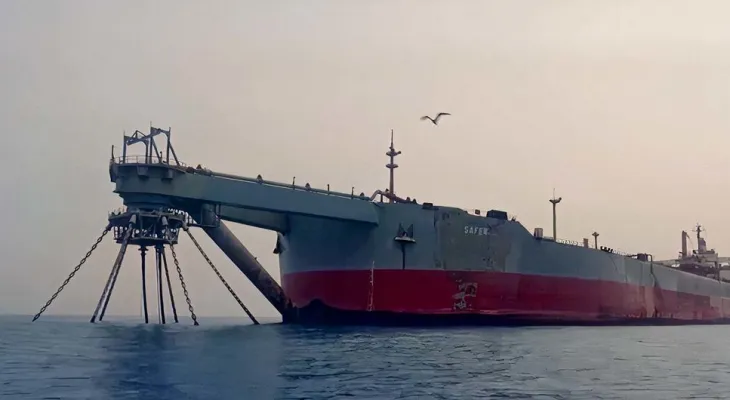
Yemen oil tanker: ‘Pivotal chapter’ concludes but important work remains
The specialist team that safely stabilized and transferred over one million barrels of crude oil from a decaying supertanker off the cost of Yemen, left the site on Monday, marking the end of a pivotal chapter in the UN-led operation to prevent a potentially disastrous oil spill in the Red Sea.
The meticulous effort onboard the rusting FSO Safer spanned months of preparation and nearly 13 weeks of execution by the SMIT salvage team, which was contracted by the UN Development Programme (UNDP).
“The UN and the broad group of partners that support the Safer project have so far succeeded in preventing the worst-case scenario of a massive oil spill in the Red Sea which with obvious potential catastrophic environmental, humanitarian and economic repercussions,” UN Spokesperson Stéphane Dujarric told reporters at a regular UN press briefing, in New York.
Oil from the Safer was transferred to the replacement vessel Yemen, formerly known as Nautica. The Yemen cast off from the Safer Sunday night, local time, to a holding anchorage point pending the installation of specialized equipment for safely storing the volatile cargo.
Critical work remains
“However, critical work remains,” Mr. Dujarric continued, noting that a specialized buoy is yet to be delivered and installed to moor the Yemen to the Safer for safe storage of the oil, as well as the towing and recycling of the old tanker.
To complete the project, $22 million is still required. Generous Member States, the private sector and the global public have already provided $121 million in funding.
“We are counting on further generous support to finish this critical mission,” Mr. Dujarric urged.
Worst case scenario averted
A spill from FSO Safer would have devastated fishing communities on Yemen’s Red Sea coast, and exposed thousands of communities to life-threatening toxins and caused irreversible damage to sea life, coral reefs and mangroves.
It would have closed the ports of Hudaydah and Saleef – which bring food, fuel and life-saving supplies into a country where 17 million are dependent on international assistance for survival.
Tourism also would have suffered greatly and vital shipping through the Bab al-Mandab Strait to the Suez Canal could have been disrupted, costing billions of dollars per day.
The potential cost of clean-up alone was estimated at $20 billion.
War-ravaged
Constructed in 1976 as a supertanker and converted a decade later to be a floating storage and offloading facility (FSO) for oil, the Safer is moored about 4.8 nautical miles off the coast of Hudaydah Governorate in Yemen.
The vessel’s structural integrity deteriorated significantly due to lack of repair and maintenance following the outbreak of the war in Yemen in 2015, putting the ship at risk of breaking apart.
UN News
Mohamed Diallo




















